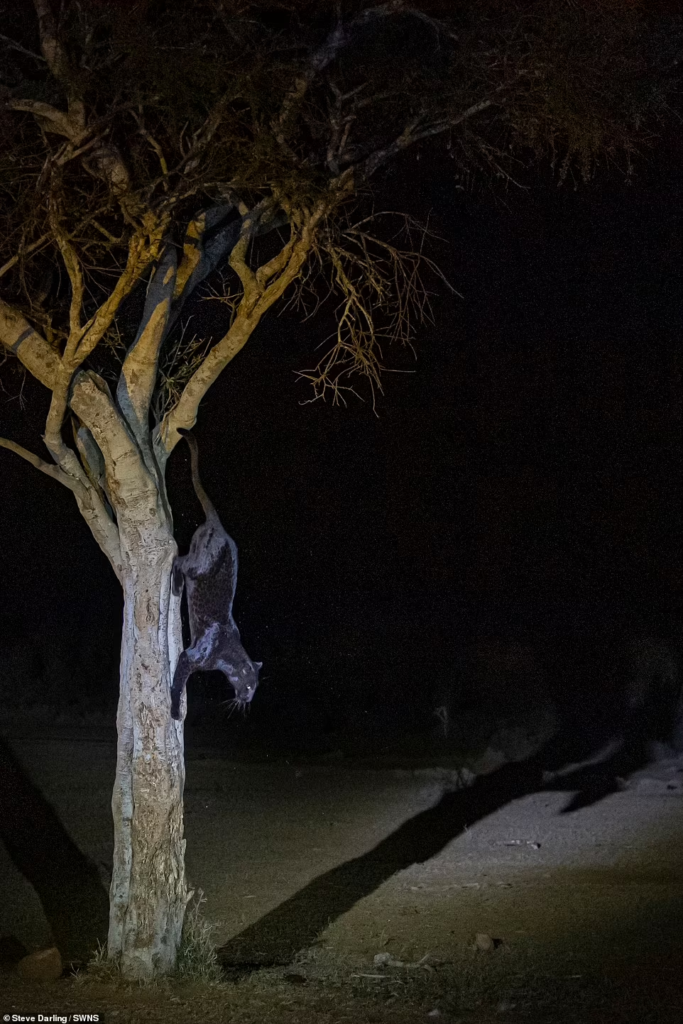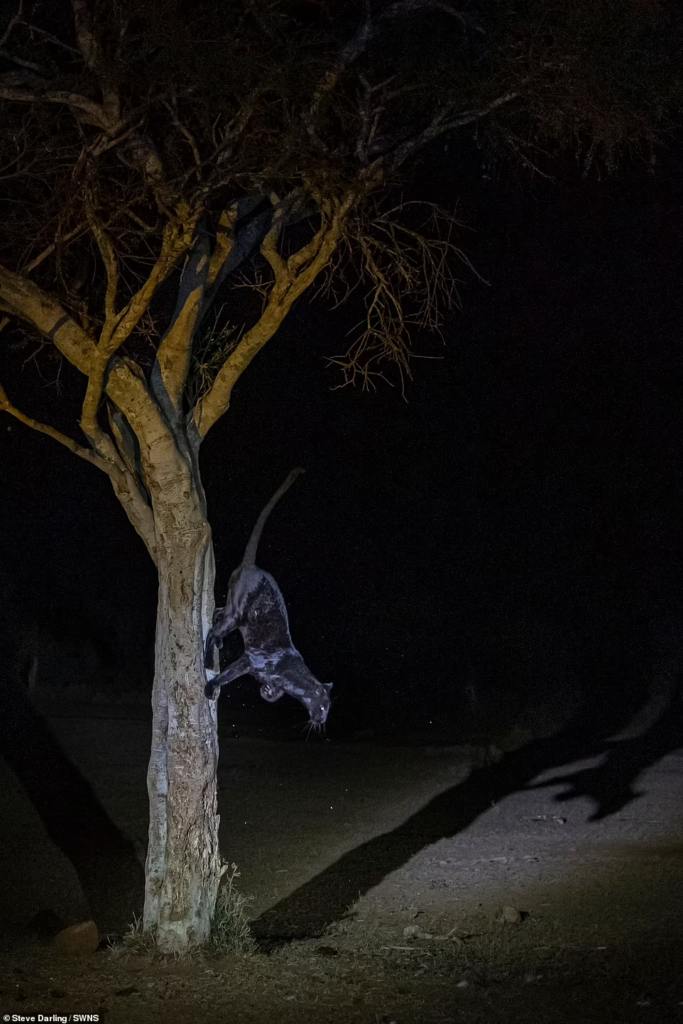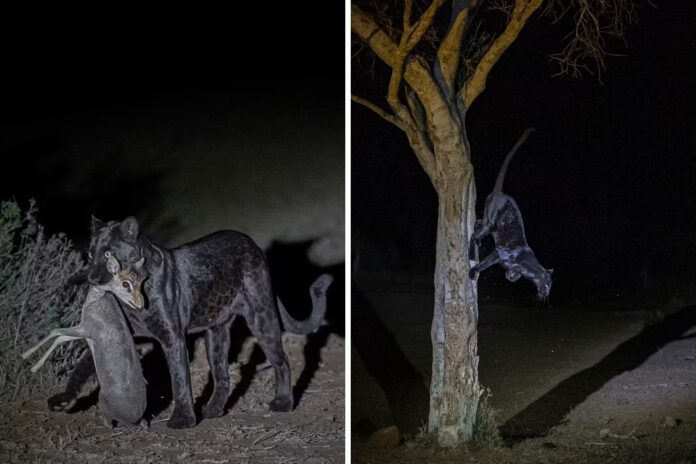An amateur British photographer has captured jaw-dropping pictures of a rare black leopard stalking at night.
Steve Darling, 74, was on a Kenyan safari earlier this month when he spotted the big cat as they made their way back to camp.
The Shrewsbury snapper said he was ‘shaking’ after observing the young female, named Giza, the Swahili word for darkness, catch a dik-dik antelope.

He explained: ‘We love wildlife and I took up photography after retirement. This was our first trip after covid lockdown.
‘The photos of the leopard were taken in Laikipia on the 1st September, on a trip with a group of photographers led by Federico Veronesi.

‘We were on our way back to the camp, in the dark, after following the tracks of a male leopard when Giza, the black leopard appeared.
‘She is a beautiful young female, not long having left her normal-coloured mother, who was also in the vicinity.
‘She lives on an island in the centre of the Ewaso Narok river and crosses over to the bank to hunt.

‘Giza melted her way through the brush, easily killed a dik-dik and then moved up into an acacia tree for her meal.
‘We waited for two hours until she had finished, when she climbed down the tree and again melted into the bush.
‘I was absolutely amazed at her grace and beauty and was actually shaking when she first appeared.

‘As you can imagine, it is not straightforward photographing a black leopard at night using spotlights, and I was so pleased when the results were available.
‘Unfortunately, the heavy rain in the mountains caused the river to swell and Giza couldn’t cross over for our remaining stay in the area.’

Black leopards only differ from other leopards in the colour of their coat, a genetic variation known as melanism.

Most commonly, dark individuals become fitter to survive and reproduce in their environment as they are better camouflaged. This makes some species less conspicuous to predators, with leopards using it as a foraging advantage during night hunting.
